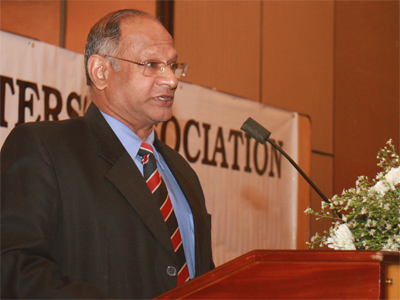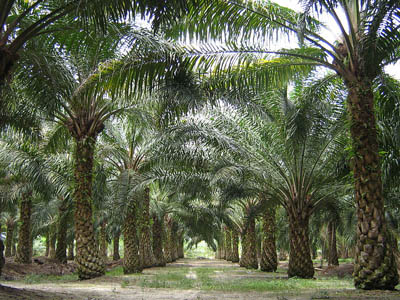Oil Palm Diversification – An Impetus for Nation Building
 Veteran plantation industry expert and Chief Executive Officer of Watawala Plantations PLC, Dr. Dan Seevaratnam recently extolled the virtues of increasing oil palm production locally. Veteran plantation industry expert and Chief Executive Officer of Watawala Plantations PLC, Dr. Dan Seevaratnam recently extolled the virtues of increasing oil palm production locally.
“I am a great believer in outcomes and not just outputs” said Seevaratnam. “Around 95% of edible oils consumed in Sri Lanka is imported at a large cost; looking at the oil palm industry, we need to see what this cost is in economic terms and what is the economic contribution to nation building”.
The local oil palm industry is considered an industry with huge potential and its products can be used for a diverse range of purposes. “If we produce our own oil in Sri Lanka we would save a great deal of foreign exchange and substitution of edible oil importation underscores the rationale for oil palm cultivation” he added.
 Oil palm has a potential oil yield of 3000 to 4000 litres of palm oil per hectare per annum. In comparison, coconut oil yields just 700 litres per hectare. Alternatives such as sunflower oil yields 600 litres in one hectare per year, and soya-bean oil has an output of only 460 litres per hectare per year. Oil palm is also a high yielding crop and very profitable, making it ideal for companies looking to diversify even in a situation where there is limited land, Dr. Seevaratnam said. Oil palm has a potential oil yield of 3000 to 4000 litres of palm oil per hectare per annum. In comparison, coconut oil yields just 700 litres per hectare. Alternatives such as sunflower oil yields 600 litres in one hectare per year, and soya-bean oil has an output of only 460 litres per hectare per year. Oil palm is also a high yielding crop and very profitable, making it ideal for companies looking to diversify even in a situation where there is limited land, Dr. Seevaratnam said.
In addition, the labour requirement for oil palm cultivation is very much less, with just one worker required to cultivate every 10 hectares of crop, unlike tea which needs two or three workers per hectare. Similarly an oil palm harvester earns from Rs.65,000 to Rs.105,000 a month when compared to a good tea plucker’s average income of Rs.25,000 per month.
High yield coupled with low resource intensity also means higher profits, as Dr. Seevaratnam pointed out. Crude palm oil earns an estimated Rs.150,000 to Rs.200,000 per hectare, while rubber is struggling to make profits.
The need of the hour, Dr. Seevaratnam stressed is for local authorities to recognize the advantages of import substitution and its economic contribution, looking at the value addition it can bring to the economy.
 “Apart from being in the industry for many years and cultivating millions of hectares, Malaysia and Indonesia have brought in vital foreign exchange to their respective economies. Sri Lanka could certainly benefit by following a similar strategy,” says Dr. Rohan Fernando, Director and Head of Business Development & Plantations of Aitken Spence PLC and the Managing Director for Elpitiya Plantations PLC. “Apart from being in the industry for many years and cultivating millions of hectares, Malaysia and Indonesia have brought in vital foreign exchange to their respective economies. Sri Lanka could certainly benefit by following a similar strategy,” says Dr. Rohan Fernando, Director and Head of Business Development & Plantations of Aitken Spence PLC and the Managing Director for Elpitiya Plantations PLC.
“At the same time, the cost of investment for oil palm is lower than even that of crops like tea and rubber,” he added. The labour utilisation too was lower than for other alternatives. Hidden advantages are that this crop cannot be stolen from plantations, unlike scrap rubber or even tea leaves.
Yet for Dr. Fernando, the potential for import substitution was one of the most compelling reasons to diversify. This is especially so given that oil palm has such a stable market internationally, with a diverse array of consumers.
Sri Lanka needs to look seriously at diversifying and increasing its present production of palm oil in order to develop this industry to be on par with other countries, he said.
Diversification into oil palm cultivation has revealed impressive results in terms of high productivity, improved value addition and export capability. It is a win-win operation for the plantation companies, domestic consumers and the country as a whole.
Released in February 2014
|